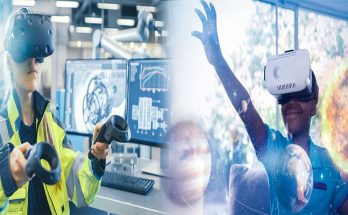In recent years, the rapid advancement of technology has revolutionized the field of education, offering innovative tools and platforms to enhance the learning experience for students. One of the key benefits of integrating educational technology into classrooms is its positive impact on student engagement and retention. By leveraging various digital resources and interactive tools, educators can create a more dynamic and immersive learning environment that motivates students to actively participate in their education.
Enhancing Student Engagement
Educational technology provides educators with a wide range of tools and resources that can capture students’ interest and make learning more interactive and engaging. For example, virtual reality (VR) and augmented reality (AR) technology can transport students to different time periods or locations, allowing them to explore concepts in a more hands-on and immersive way. Gamification is another effective technique that uses game elements to make learning activities more enjoyable and engaging.
Furthermore, online discussion forums and collaborative platforms enable students to interact with their peers and share ideas outside of the traditional classroom setting. This not only fosters a sense of community and collaboration but also helps students develop critical thinking and communication skills. By integrating educational technology into their teaching practices, educators can cater to different learning styles and preferences, ultimately leading to increased student engagement in the learning process.
Improving Student Retention
Another significant impact of educational technology is its ability to improve student retention rates. By providing personalized learning experiences and immediate feedback, technology can help students stay on track with their studies and monitor their progress more effectively. Adaptive learning platforms use algorithms to tailor instruction to each student’s individual needs, ensuring that they receive the support and resources they need to succeed.
Moreover, educational technology can offer a more flexible and accessible learning experience, allowing students to access course materials anytime and anywhere. This is particularly beneficial for students with diverse learning needs or those who require additional support. By incorporating multimedia resources, interactive tutorials, and online assessments, educators can create a more engaging and inclusive learning environment that caters to a wide range of learners.
The impact of educational technology on student engagement and retention is undeniable. By integrating digital tools and resources into their teaching practices, educators can create a more dynamic, interactive, and personalized learning experience for students. Through enhanced engagement and improved retention rates, educational technology has the potential to transform the way we educate future generations and empower students to reach their full potential.





